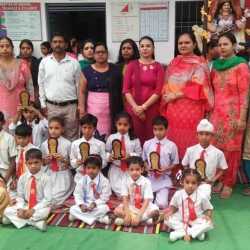
This article shall dwell upon the Business structure for starting a play school in India and elaborate upon the various foundations it lies on.įor setting up a playschool, first and foremost a Business plan must be prepared to take into consideration all important issues and challenges. Henceforth the increasing demand and rising importance of preschool education for shaping a child’s personality and laying the foundation of his/her character has made setting up a Playschool a lucrative business opportunity.

As per the Law commission Report No.259 Early Childhood Development and Legal Entitlements “The National Early Childhood Care and Education (ECCE) Policy, 2013 envisions a holistic and integrated development of the child with a focus on care and early learning at each sub-stage of the development continuum, in order to promote all-round development.” However, The ECCE scheme is yet to be implemented.Īs per the 2011 Census, Children in the age group of 0-6 years constitute 158.7 million that is about 16% of the total Indian population.
#Mr children school ludhiana for free#
Though children below the age of 6 are beyond the scope of the fundamental Right to Education the act does address early childhood care in Section 11 of the Act by stating that “the appropriate government may make necessary arrangement for providing free pre-school education.” In pursuance to this, the Government of India has signed a convention for implementing Early Childhood care and Education Scheme for free playschool education. The Right to Education Act enacted by the Government of India in 2009 provides for free and compulsory education for children between 6 and 14 in India under Article 21A of the Indian Constitution. Where a fast growing economy has generated numerous opportunities and created a favorable environment for businesses to flourish, the rising social awareness has led to a demand for quality education for all age groups including the formative years of a child. In the recent years, India has achieved milestones of success in the economic sector by becoming the tenth-largest in the world by nominal GDP and the third-largest by purchasing power parity and has witnessed significant social development with rising levels of literacy and social awareness. At several government schools, the primary teachers are also taking classes of the out-of-school children.In this blogpost, Mansi Arora, Student of Delhi University and of the Diploma in Entrepreneurship Administration and Business Laws by NUJS, writes about the business plan and the legal requirements for starting a play school in India. There are 600 special training volunteers in district. Due to shortage of infrastructure, the special training volunteers are conducting the classes in the government schools only. The special training volunteers will train the children for a few months and after that the children will be shifted to the main school. Last year too, 2,888 children were traced to be out-of-school and our volunteers made efforts to identify children and had visited door to door." Talking to Hindustan Times, district education officer, elementary, Gurjot Singh, said, "Our volunteers have traced the children and a report has been sent to director general, school education office. She or he should be on a par with others, have a right to receive special training within such time limits."

Provided that where a child is directly admitted in a class appropriate to his or her age. The definition of the Right to Education (RTE) under Chapter 2 Section 3(1) says "Every child of the age of 6-14 years shall have a right to free and compulsory education in the neighbourhood school till completion of elementary education."įurther Section (4) of the RTE says, "Where a child above six years of age has not been admitted in any school, could not complete his or her elementary education, then he or she should be admitted in a class appropriate to his or her age. This is the lowest figure in the last five years as 5,610 children were traced to be out-of-school in 2010 6,748 in 2011 3,670 in 2012 2,888 in 2013 and 1,837 this year.Ī child is categorised as 'out-of-school' if he/she is either not enrolled or has been absent for more than 45 working days or has discontinued studies from the school. The survey was conducted as per the directions of director general, school education (DGSE), Punjab. As many as 1,837 children in the district between the age of 6 and 14 are out-of-school, reveals the household survey conducted last month by special training volunteers (STV).


 0 kommentar(er)
0 kommentar(er)
